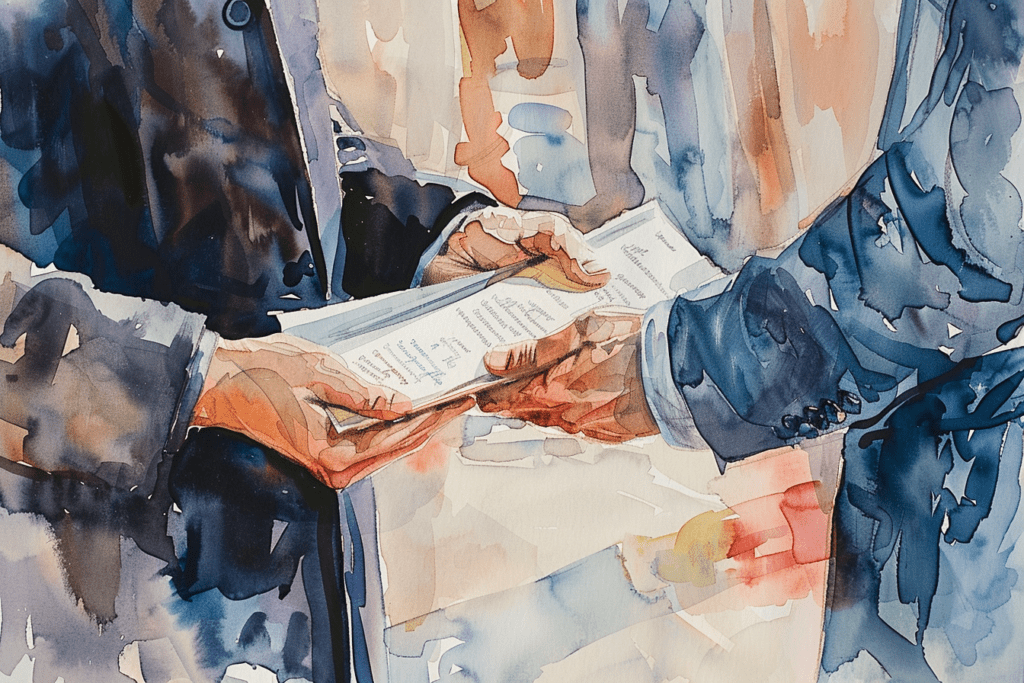
How to Use AI for a Funeral Thank You Card Message

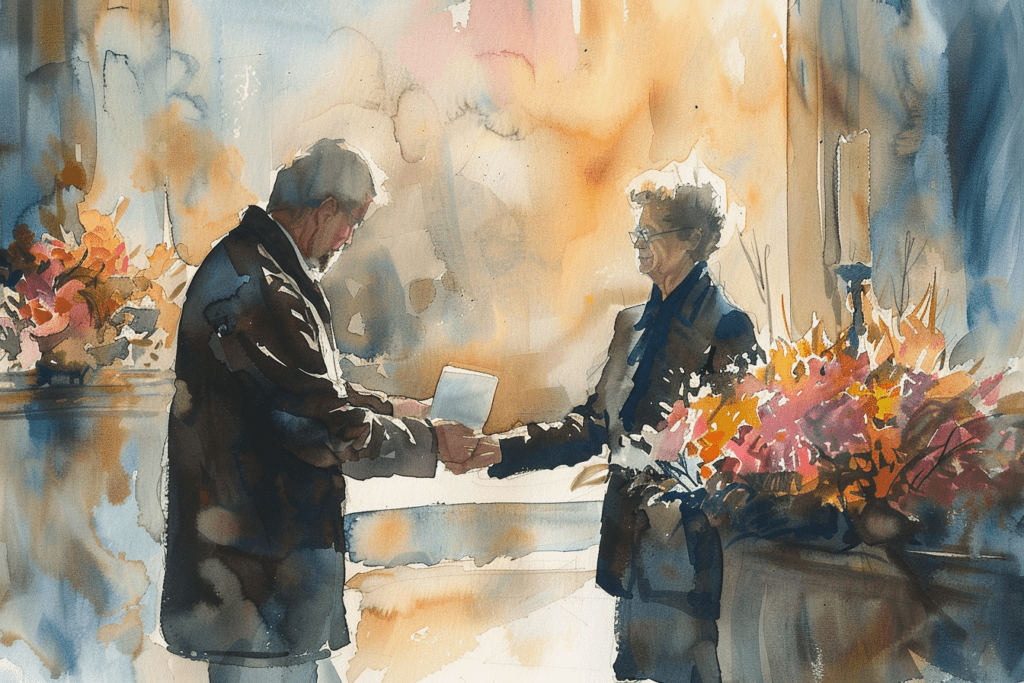

Introduction

Losing a loved one is an incredibly challenging experience, and amidst the grief, expressing gratitude to those who offer support can feel overwhelming. Writing funeral thank you cards is a way to acknowledge and appreciate the kindness extended by friends and family.
However, finding the right words during such a time can be difficult. This is where AI technology can help, providing compassionate and personalised messages.
This article will guide you through using AI to create heartfelt funeral thank you card messages.
After reading the article please consider our collection of personalised thank you cards.
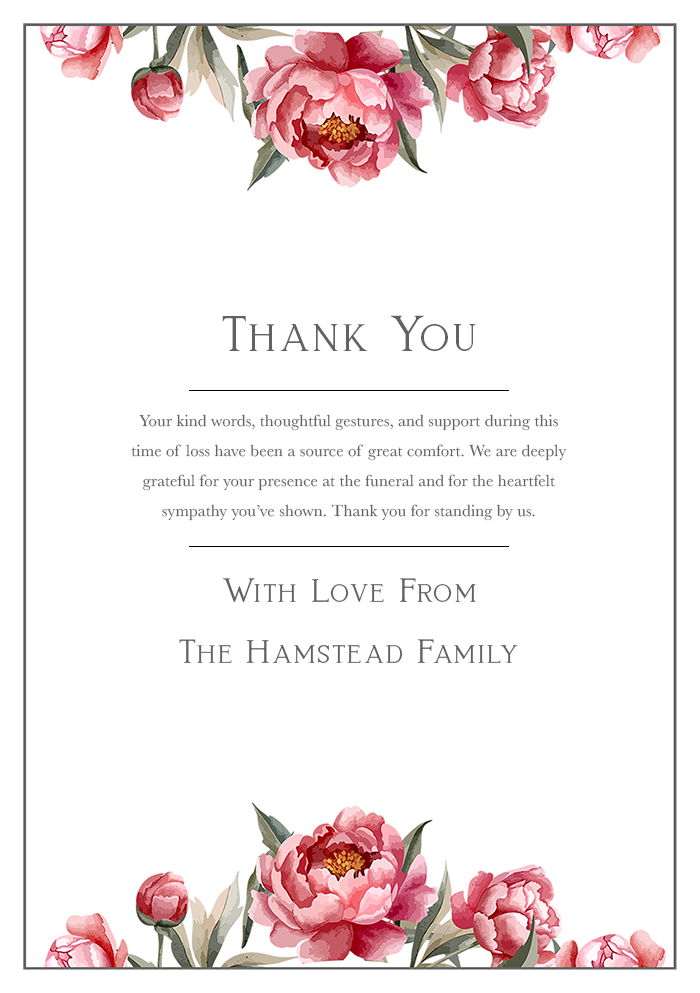
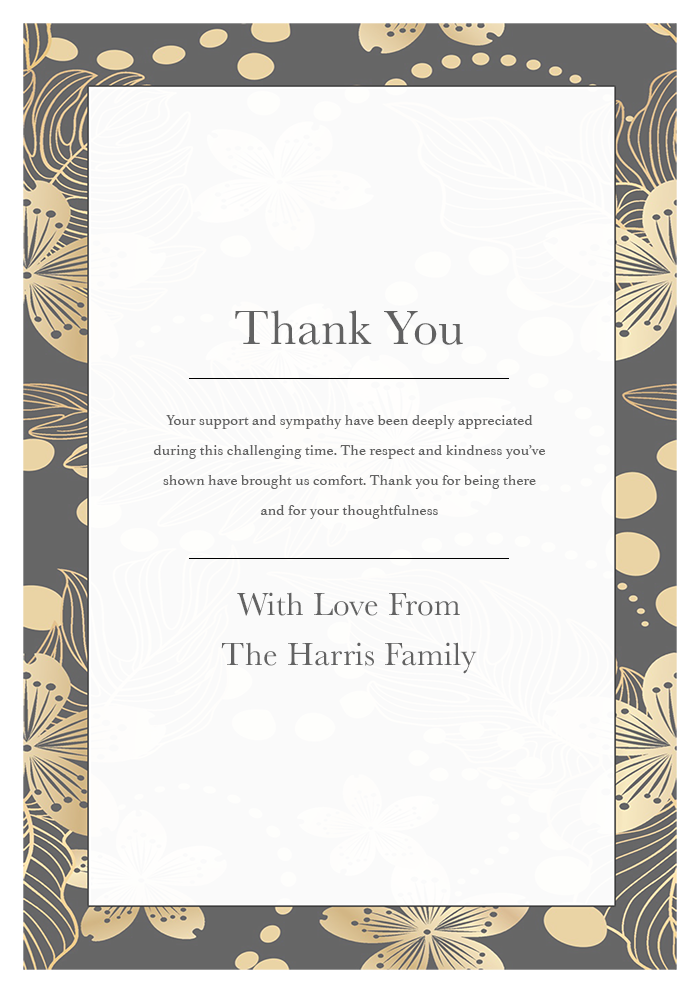
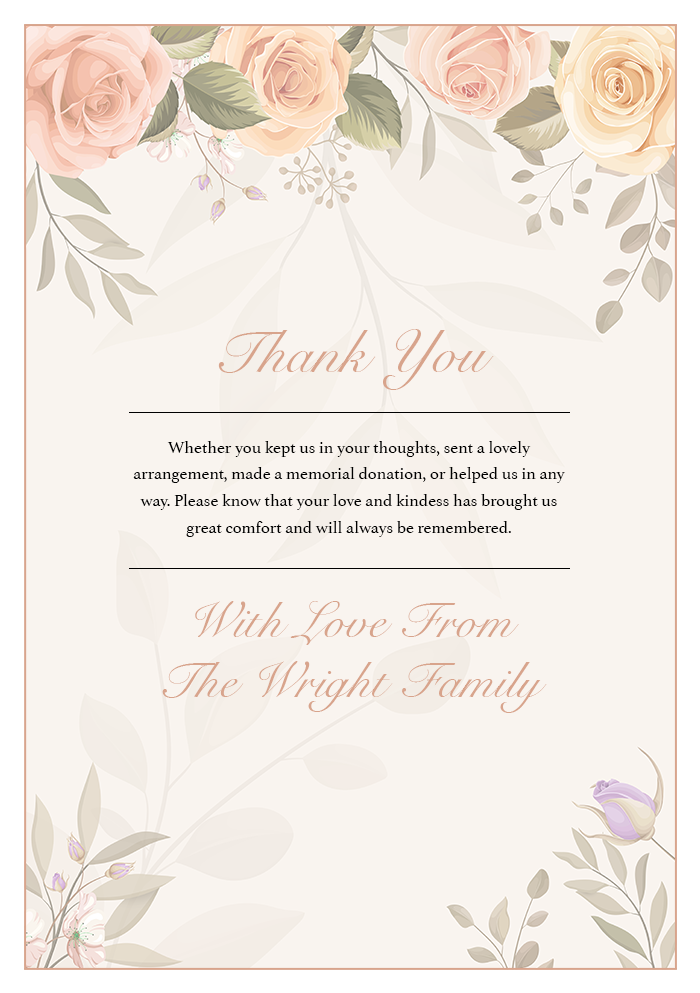

Article Contents

Understanding the Importance of Funeral Thank You Cards

Funeral thank you cards serve as a token of gratitude to those who supported you during a time of loss. They are a small but significant gesture that acknowledges the care and compassion shown by friends, family, and acquaintances.
These cards help maintain connections and show that their support was appreciated, which is especially important during grieving.

How AI Can Help

AI can assist in generating thoughtful and sensitive messages for funeral thank you cards. This technology can ease the burden of finding the right words, allowing you to focus on healing. Here’s how AI can be utilised effectively:
Personalisation
AI can generate messages that are tailored to the recipient, making the gratitude feel more personal. By inputting specific details about the person and their support, AI can create a message that feels uniquely crafted for each individual.
Efficiency
During a time of grief, the thought of writing numerous thank you cards can be daunting. AI can expedite this process by quickly generating multiple messages, saving you time and emotional energy.
Sensitivity
AI models can be trained to understand and generate sensitive content, ensuring that the messages are appropriate and considerate. They can help strike the right tone, balancing gratitude and respect.

Steps to Using AI for Funeral Thank You Cards

Choose the Right AI Tool
There are various AI tools available that can assist in writing. Some popular options include OpenAI’s GPT, Google’s AI writing tools, and specialised funeral card writing services. Choose one that suits your needs and comfort level.
Input Relevant Information
Provide the AI with specific information about the recipient and the kind of support they offered. Details such as their relationship to the deceased, the help they provided, and any memorable moments can guide the AI in crafting a meaningful message.
Review and Edit
While AI can generate a strong foundation, it’s important to review and edit the messages. Ensure that the tone is appropriate and that the message accurately reflects your feelings. Personal touches can make a significant difference.
Maintain Consistency
If you’re using AI to generate multiple thank you cards, ensure consistency in the tone and style of the messages. This consistency helps maintain a genuine and heartfelt expression of gratitude.
Use Templates
Some AI tools offer templates for funeral thank you cards. These can provide a useful starting point, which can then be customised to fit your needs. Templates can ensure that key elements are included in each message.

Example Messages

Basic Template
Prompt: “Write a basic thank you card message for a funeral.”
Message: “Dear [Name],
Thank you for your kindness and support during this difficult time. Your presence and comforting words have meant a great deal to us. We are truly grateful for your compassion.
Sincerely, [Your Name]”
Personalised Message
Prompt: “Write a personalised thank you card message for a funeral, mentioning the deceased’s name and a specific act of kindness.”
Message: “Dear [Name],
I want to express my heartfelt gratitude for your support during the loss of [Deceased’s Name]. Your [specific act of kindness, e.g., ‘help with the memorial service’] was deeply appreciated. Your thoughtfulness and care have been a great comfort to us.
With warm regards, [Your Name]”
For a Close Friend
Prompt: “Write a thank you card message for a close friend who supported you after the passing of a loved one.”
Message: “Dear [Name],
Words cannot express how thankful I am for your unwavering support following the passing of [Deceased’s Name]. Your [mention specific support, e.g., ‘being there every day’] has been a source of strength and comfort. Your friendship is a true blessing.
Much love, [Your Name]”
For a Colleague
Prompt: “Write a thank you card message for a colleague who offered condolences and support after the passing of a loved one.”
Message: “Dear [Name],
I am deeply grateful for your support and condolences during this difficult time. Your kind words and understanding have provided much-needed comfort. Thank you for being there.
Best regards, [Your Name]”

Tips for Writing Meaningful Messages

Writing meaningful thank you messages during a time of grief can be challenging. Here are some comprehensive tips to ensure your messages are heartfelt and appropriate:
Keep It Simple
In times of grief, simplicity can be profoundly effective. A short, sincere message often carries more weight than an overly detailed one. Focus on expressing your gratitude clearly and concisely.
Overcomplicating your message can dilute the sentiment. Simple expressions like “Thank you for your support” or “Your kindness meant so much to us” can be very impactful.
Be Specific
Adding specific details can make your message more personal and heartfelt. Mention the specific act of kindness or support that the recipient offered.
For example, “Your help with the memorial service was deeply appreciated” or “Your comforting words gave us strength” adds a personal touch that makes the message more meaningful.
Express Emotions
Don’t hesitate to share your emotions. Letting the recipient know how their support made you feel can enhance the sincerity of your message.
Phrases like “Your kindness brought us great comfort during this difficult time” or “Your support has been a source of strength for us” convey genuine gratitude and appreciation.
Offer Future Contact
If appropriate, express a desire to keep in touch. This can help maintain the bond and support system during your healing process.
You could include a line like “I hope we can stay in touch” or “Let’s keep in contact” to show that their support is valued beyond the immediate grieving period.
Reflect on Shared Memories
If you have shared memories with the recipient, incorporating these into your message can add a deeply personal touch.
Reflecting on these moments shows that you value their presence and the positive impact they have had on your life. For example, “I will always remember the stories you shared about [Deceased’s Name]” can add warmth to your message.
Acknowledge Their Role
Recognising the specific role the recipient played during your time of grief can make your message more meaningful.
Whether they were a source of comfort, a helping hand, or simply someone who listened, acknowledging their role shows that you noticed and appreciated their efforts.
Handwrite When Possible
Handwriting your thank you cards can make the message feel more personal and sincere. In a digital age, a handwritten note stands out and shows that you took the time to personally acknowledge the recipient’s support.
Avoid Overused Phrases
While certain phrases are commonly used in thank you notes, try to personalise your message to avoid sounding generic.
Instead of saying “Thank you for your support,” you could say, “Your support has meant so much to us during this difficult time.” Personalising your message makes it feel more genuine and heartfelt.
Take Your Time
Don’t rush the process. Give yourself time to reflect on your feelings and the support you received. Writing in a calm and thoughtful manner will help you craft a message that truly conveys your appreciation.
Seek Feedback
If you’re unsure about your message, consider asking a trusted friend or family member for their input. They can provide a fresh perspective and help ensure that your message is both appropriate and heartfelt.

Conclusion

Using AI to assist in writing funeral thank you cards can be a valuable tool during a time of loss. It can help you express your gratitude in a meaningful and personalised way, easing some of the burdens of this challenging task.
By choosing the right AI tool, providing specific information, and adding personal touches, you can create heartfelt messages that honour the support you’ve received. Remember, the most important aspect is that your appreciation is sincerely conveyed.


